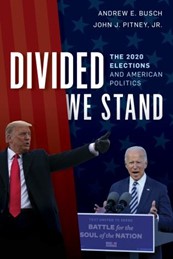In Defying the Odds, we discuss the conservative movement and t
he grifters who have drained its resources. The GOP's
moderate wing is not in great shape, either. (
The update of the book -- recently published --includes a chapter on the 2018 midterms.)
Susan Davis at NPR:
Three weeks after Democrats took control of the U.S. House in the 2018 midterm elections, about 40 reelected and recently defeated lawmakers in the centrist Republican Main Street Caucus gathered at the Capitol Hill Club to sift through the electoral wreckage.
The caucus — then led by Reps. Rodney Davis of Illinois, Jeff Denham of California, Mario Diaz-Balart of Florida and Fred Upton of Michigan — was scheduled to hold its regular meeting with the outside group that inspired its name, the Republican Main Street Partnership, led by president and CEO Sarah Chamberlain.
Founded in the late 1990s, RMSP raises money to support the Republican Party's moderate wing. GOP lawmakers embraced the RMSP name when, in 2017, it launched the caucus — an official member organization registered in the U.S. House. The member caucus was driven by a desire to counterbalance the weight of the conservative wing inside the House GOP. Lawmakers believe that rebuilding the centrist coalition is key to improving the GOP's odds of winning a House majority in 2020.
...
That Nov. 28 meeting set off a cascading series of events over the next two months. Lawmakers demanded, and were denied, an audit of RMSP's activities. Lawmakers ultimately abandoned the member caucus, and others quietly distanced themselves from RMSP and Chamberlain. Today, lawmakers still don't have answers to their questions about how Chamberlain runs the organization and whether it might be running afoul of campaign finance and tax laws

